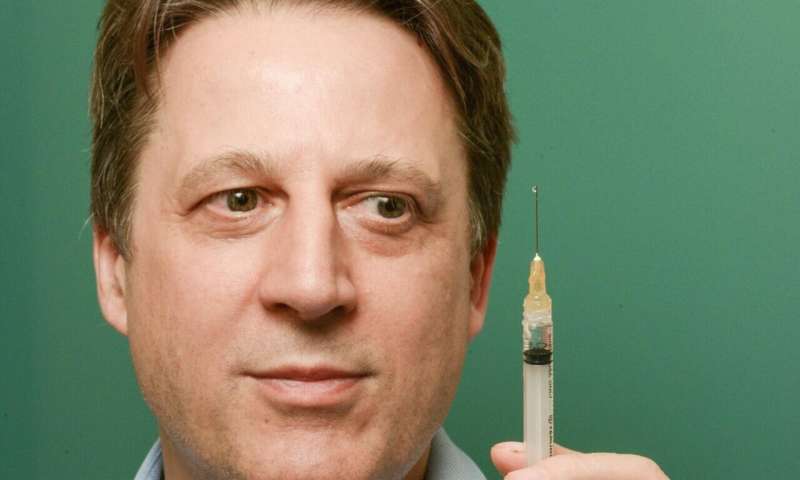Australian trials of COVID-19 vaccine

A potential COVID-19 vaccine developed at Flinders University has commenced human trials in South Australia.
The Phase 1 trials have started at the Royal Adelaide Hospital (RAH) to test a promising new COVID-19 vaccine candidate, called COVAX-19.
The vaccine candidate, developed by Vaxine Pty Ltd and Flinders University researchers, will provide initial safety and immune response data on 40 healthy participants aged between 18 and 65 years who have already been pre-screened.
Participants with receive two doses, three weeks apart, of the new vaccine or a placebo injection and will then have blood tests to measure protective antibody and T-cell responses induced by the vaccine.
The World Health Organization lists more than 100 COVID-19 vaccine projects in either preclinical and early human clinical trials, with several others in Australia also closing in on possible human testing.
Flinders University Professor Nikolai Petrovsky, chairman and research director of Vaxine, says the first Southern Hemisphere human trials of a SARS-CoV-2 (COVID-19) vaccine candidate is based on the company's recombinant spike protein approach.
"The COVAX-19 vaccine was developed from Vaxine's earlier SARS coronavirus vaccine approach, which combines with Vaxine's non-inflammatory Advax-CpG55.2 adjuvants.
"Past experience with adenovirus-based vaccines has shown disappointing protection and high toxicity and DNA and mRNA type vaccines have their own problems, including being unproven technologies that may still turn out to be poorly scalable or have unexpected side effects. Low immunogenicity of adenovirus, DNA and mRNA technologies in particular could be a major problem when it comes to coronavirus vaccines, where immunity will need to be strong and long-lasting" explained Prof. Petrovsky.
"Most of these vaccine technologies are unable to benefit from adjuvants, which are the key turbochargers that are bolted onto protein-based vaccines to dramatically enhance their effectiveness."
The vaccine model was developed with artificial intelligence (AI), and received support from the National Institute of Allergy and Infectious Diseases (NIAID), part of the US National Institutes of Health under NIAID Contracts HHSN272200800039C, HHSN272201400053C, and HHSN27221800024C.
Prof Petrovsky explains long-term financial support is required to build a robust pandemic vaccine platform and advance it into human trials.
"Pandemic vaccine development is of paramount public health importance. Research in this area should not be something you can turn on and off like a tap."
Principal Investigator on the potential vaccine, Flinders University Professor David Gordon, a microbiologist and infectious diseases physician with SA Pathology, says the trial is the first of several planned and involves testing the safety and immune responses to the vaccine.
"This COVID-19 vaccine has already shown promising results in animal models, so it is exciting to take this national breakthrough to human trials in Adelaide," Dr. Gordon says.
"The development of antibodies and other immune responses will be determined two weeks after the second injection, so the results of the first trial will available in around two months' time."
Dr. Pravin Hissaria, Clinical Immunologist from Royal Adelaide Hospital, says the trial participants' involvement was a vital component of the medical research to find a vaccine.
"Now, members of the public have stood up to be amongst the first people in the world to receive a trial vaccine. Their actions could help us find a permanent solution to this devastating global pandemic."
After health checks are run on the first volunteer, the other participants will be called in a week to receive the vaccine at PARC Clinical Research centre at the RAH. After assessments, Phase 2 clinical trials will be scheduled for further testing later this year.
Provided by Flinders University